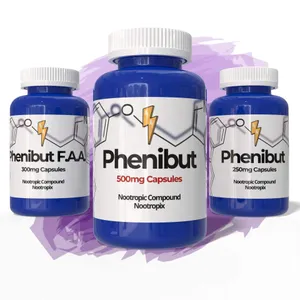
MILK THISTLE VS TUDCA
Milk thistle and TUDCA (Tauroursodeoxycholic acid) are two popular supplements frequently discussed in fitness and bodybuilding circles due to their perceived benefits in supporting liver health. As anabolic steroid use can place considerable strain on the liver, promoting liver health with these supplements has become a focal point among athletes and bodybuilders. While they both aim to protect the liver, they function differently and offer distinct advantages.
Milk thistle, scientifically known as Silybum marianum, is a flowering herb well-known for its hepatoprotective properties. The active compound in milk thistle, silymarin, is believed to possess antioxidant, anti-inflammatory, and antifibrotic properties. These attributes make milk thistle a popular choice for liver support. Consuming milk thistle may help to combat the oxidative stress and inflammation caused by the use of anabolic steroids, which can, over time, lead to liver damage.
On the other hand, TUDCA, a bile acid derivative, has been traditionally used in Eastern medicine for its liver-protective benefits. TUDCA is thought to work by improving bile flow and reducing the toxic load on the liver. By promoting proper bile flow, TUDCA supports the detoxification process in the liver, enhancing its capacity to clear out harmful substances. For those in the bodybuilding and fitness community, TUDCA is often regarded as particularly effective for managing stress on the liver during intense steroid cycles.
Choosing between milk thistle and TUDCA can be challenging, as each supplement offers unique benefits. Milk thistle is widely available and has a long-standing reputation for safety and efficacy in promoting liver health. Its antioxidant properties are especially beneficial for those seeking to maintain overall wellness beyond just liver health. However, its effectiveness can vary, as the absorption and bioavailability of silymarin can be relatively low.
In contrast, TUDCA is praised for its targeted efficacy in liver detoxification and bile flow improvement, making it a potent choice for those specifically looking to mitigate the side effects associated with anabolic steroid use. However, TUDCA is often more expensive and less readily available than milk thistle.
In conclusion, both milk thistle and TUDCA present valuable options for supporting liver health, each with its own set of benefits. For those in the bodybuilding community, considering the specific health goals and potential side effects of their steroid cycles is essential. Whether choosing the antioxidant benefits of milk thistle or the focused liver and bile support of TUDCA, consulting with a healthcare provider is recommended to select the most appropriate supplement strategy. For additional insights on steroid use, consider exploring resources such as
FAQs
Q: Is it safe to use both milk thistle and TUDCA together?
A: While many individuals use both supplements together for comprehensive liver support, it’s important to consult with a healthcare provider to ensure it’s suitable for your specific health needs.
Q: How long should I take these supplements?
A: The duration varies based on individual needs and liver health status. Consultation with a healthcare provider is advised to determine the appropriate course of action.
Q: Can milk thistle or TUDCA reverse liver damage?
A: These supplements are primarily preventive. While they can support liver health and possibly mitigate damage, existing severe conditions should be managed under medical supervision.
Milk thistle and TUDCA (tauroursodeoxycholic acid) are both popular supplements known for their liver-protecting properties, yet they operate through different mechanisms. Milk thistle, derived from the Silybum marianum plant, contains silymarin, a potent antioxidant that is believed to help regenerate liver cells and provide protection against toxins, thereby fostering overall liver health. It is often used as a traditional remedy for various liver-related conditions. On the other hand, TUDCA is a bile acid derivative that serves a different protective role by aiding proper bile flow and reducing liver stress due to its ability to counteract the accumulation of toxic bile acids. It shows promise not only in promoting liver health but also in protecting cell health throughout the body, with potential applications extending to neuroprotection and metabolic support. While both supplements are favored for their liver benefits, individuals often choose between them based on specific health needs, toxicity levels, or as per a healthcare provider’s recommendation, as both offer distinct yet complementary pathways to supporting liver health.














